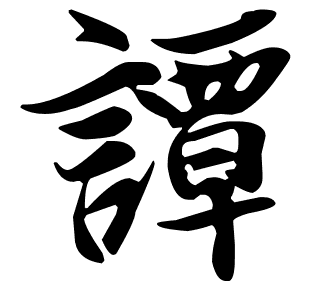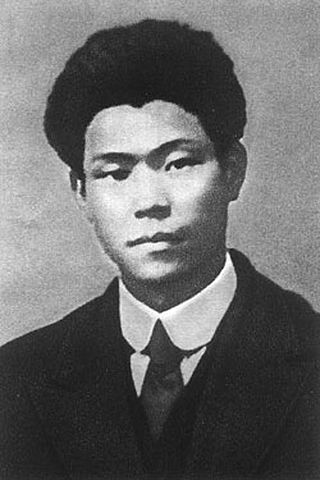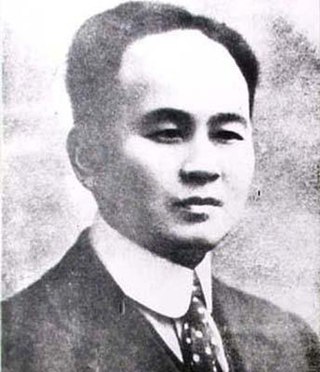See also
- Hesen Begê Cemetery, a cemetery in Mardin Province, Turkey
Hesen is a surname and Chinese given name. Notable people with the name include:

Cài is a Chinese-language surname that derives from the name of the ancient Cai state. In 2019 it was the 38th most common surname in China, but the 9th most common in Taiwan, where it is usually romanized as "Tsai", "Tsay", or "Chai" and the 8th most common in Singapore, where it is usually romanized as "Chua", which is based on its Teochew and Hokkien pronunciation. Koreans use Chinese-derived family names and in Korean, Cai is 채 in Hangul, "Chae" in Revised Romanization, It is also a common name in Hong Kong where it is romanized as "Choy", "Choi" or "Tsoi". In Macau, it is spelled as "Choi". In Malaysia, it is romanized as "Choi" from the Cantonese pronunciation, and "Chua" or "Chuah" from the Hokkien or Teochew pronunciation. It is romanized in the Philippines as "Chua" or "Chuah", and in Thailand as "Chuo" (ฉั่ว). Moreover, it is also romanized in Cambodia as either "Chhay" or "Chhor" among people of full Chinese descent living in Cambodia and as “Tjhai”, "Tjoa" or "Chua" in Indonesia.

Tan is a common Chinese surname 譚, and is considered the 56th most common.

Zhōu is a Chinese-language surname. In places which use the Wade–Giles romanization such as Taiwan, Zhou is usually spelled as "Chou" (ㄓㄡ), and it may also be spelled as "Chiau", "Chau", "Chao", "Chew", "Chow", "Chiu", "Cho", "Chu", "Jhou", "Jou", "Djou", "Jue", "Jow", or "Joe". Zhou ranks as the 10th most common surname in Mainland China as of 2019. In 2013 it was found to be the 10th most common name, shared by 25,200,000 people or 1.900% of the population, with the province with the most being Hunan. Derived from the Zhou dynasty, it has been one of the ten most common surnames in China since the Yuan dynasty. It is the 5th name on the Hundred Family Surnames poem. The Korean surname, "Joo" or "Ju", and The Vietnamese surname, "Châu" or "Chu", are both derived from and written with the same Chinese character (周). The character also means "around". Zhōu also stands for other, rare Chinese family names, 舟, 州,and 洲.
Shan is a Chinese surname. The origin of this surname is not clear. One explanation is that it came from Shan County in Shandong province. Another possible origin involves King Cheng of Zhou's youngest son's acquisition of the name when he was given what would become the Shan state when the enfeoffment system was enacted during the Zhou dynasty. The Shan state existed for a few hundred years before it was annexed by a stronger neighbouring state. It was located in present-day Jiyuan, Henan province. Although the surname comes from the place name, the Shan family was a branch of the royal family of the Zhou dynasty. Its ancient origin determines its rareness and not many people have the Shan surname. According to one unverifiable estimate, about 150,000 people are of the surname.

Hassan or Hasan is an Arabic masculine given name in the Muslim world.
The 3rd Central Executive Committee of the Chinese Communist Party was in session from 1923 to 1925, while China was a republic. The 2nd Central Executive Committee of the Chinese Communist Party preceded it. The 4th Central Executive Committee of the Chinese Communist Party followed.
The 2nd Central Executive Committee, officially the 2nd Central Executive Committee of the Communist Party of China, was elected by the 2nd National Congress and its electoral term started in 1922 and ended in 1923. This was the first form of a central committee organ elected by the CCP. Still, modern sessions of the Central Committee of the Chinese Communist Party are, by custom, numbered according to the session of the National Congress at which they are elected.
Tuo is a Chinese surname, and a given name in various cultures. 柁 is pronounced Tuó in Mandarin.

Cai Hesen was an early leader of the Chinese Communist Party (CCP), and a friend and comrade of Mao Zedong. Cai was born in Shanghai but grew up in Shuangfeng County in Hunan Province of China. He helped Mao organize the Changsha New People's Study Society. In 1919 he went to France on the Work-Study program, and his letters of advocacy were important in convincing Mao of the Bolshevik revolutionary approach. On his return to China, he was an important leader and organizer for the young Communist Party, spent several years in Moscow, and returned to China again in 1931. While organizing revolutionary activity in Hong Kong, he was arrested and given over to Canton authorities, who executed him in August, 1931.

Xiang Jingyu, was one of the earliest female members of the Chinese Communist Party (CCP), widely regarded as a pioneer of the women's movement of China.
Pei is an East Asian surname originating in north China. In 2008, it was the 156th most common surname in mainland China, with at least 830,000 Chinese sharing this name.
Chai is a Chinese surname. The same surname is Sài in Vietnamese, and Si in Korean.

Yang Changji was a Chinese educator, philosopher, and writer. After advanced studies in Japan and Europe, he taught at Hunan First Normal University, where he exerted considerable influence on Mao Zedong, Cai Hesen, Xiao Zisheng, and others, and then at Peking University. He became considered one of the leading philosophers of his generation before his early death.

Xiao San was a Chinese poet and translator. He was fluent in Russian, French, German, and English.

Cai Chang was a Chinese politician and women's rights activist who was the first chair of the All-China Women's Federation, a Chinese women's rights organization.
Jiǎn is a Han surname meaning "bamboo slip" or "simple". It was the 382th surname listed on the Hundred Family Surnames. There are more people in Taiwan with this surname than any single province in Mainland China.
Makan is a name.
Shu is a Chinese surname. It is 43rd in the Hundred Family Surnames, contained in the verse 熊紀舒屈. Šumuru sinicized their clan name to the Chinese surnames Shu (舒), Xu (徐) or Xiao (蕭) after the demise of the Qing dynasty.
Hè ), also romanized as Ho, is a Chinese surname that is 71st in the list of the top 100 most common Chinese family names. The Chinese character 贺 / 賀 means "celebrate" or "congratulate." According to a 2013 study, He was the 86th most common surname, shared by 2,740,000 people or 0.210% of the population, with the province with the most people being Hunan. It is the 70th name on the Hundred Family Surnames poem.
The August 16 and 17, 2021 Turkish airstrikes on Sinjar were several airstrikes on Sinjar District which targeted the Sinjar Resistance Units (YBŞ) fighters including Seîd Hesen, a leading member of that organization, and also bombing a hospital in the Sikeniye village. Except Hesen two others were killed in the airstrike of 16 August including Seid Hesen's nephew and a YBŞ fighter Îsa Xwedêda, and three others also wounded. As a result of 17 August airstrikes which targeted the hospital of Sikeniye, eight people were assassinated including four hospital staff and four YBŞ fighters who were responsible for the security of the hospital.